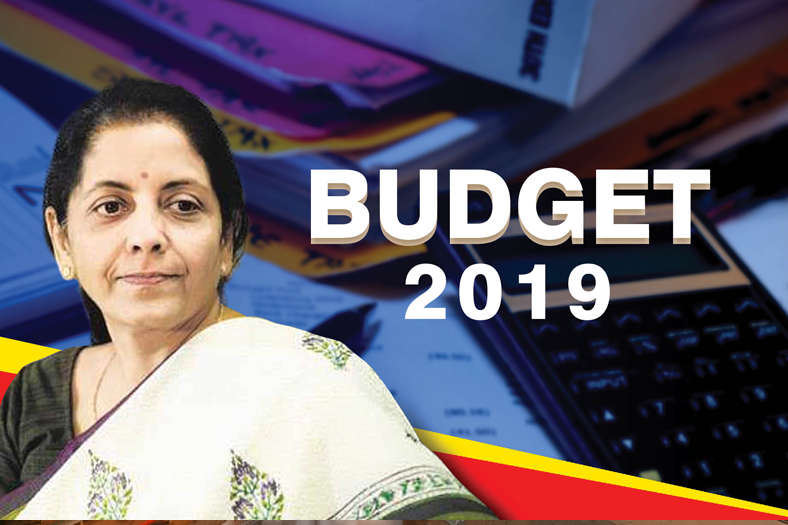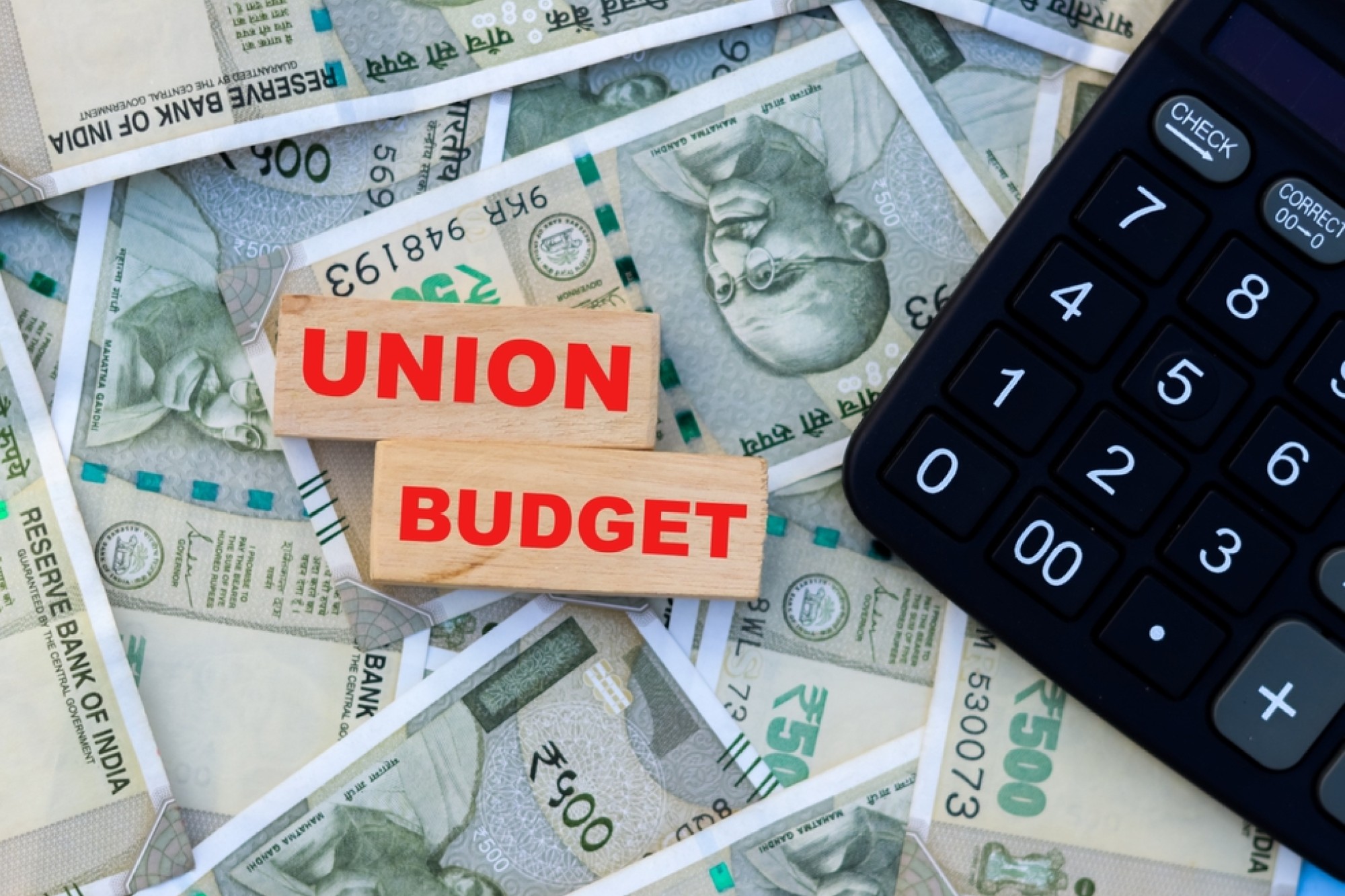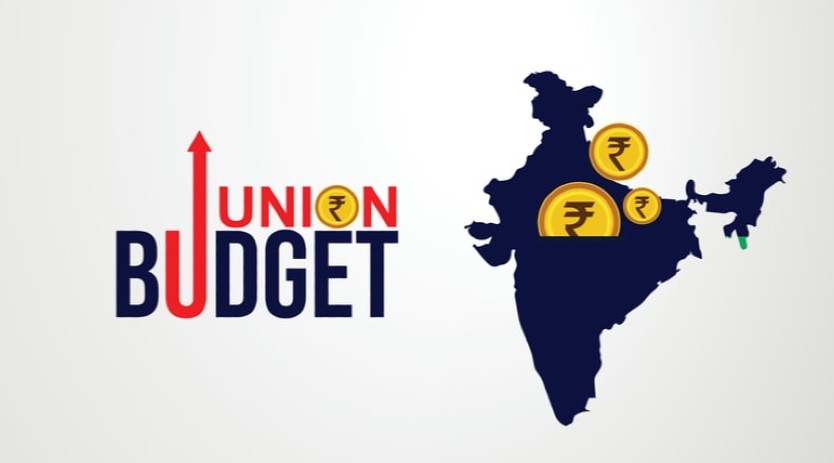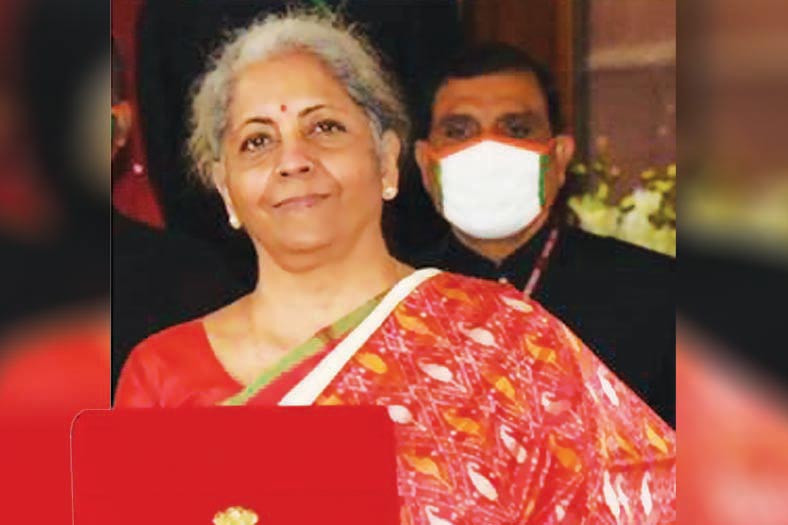Budget 2019: Positions India as an elite manufacturing hub
By OEM Update Editorial August 7, 2019 3:32 pm IST
The union budget released by Finance Minister, Ms. Nirmala Sitharaman, is a significant one for India’s manufacturing sector as well as the machine tool industry. As the first ever budget presented by a full-time woman finance minister in India, the budget looks a promising one to arrest downturn and steer the country’s economy in the right direction. The lower 25 per cent corporate tax on companies with turnoverof upto 400 crore is expected to boost investments. It is a positive step towards development of MSME sector and enhancing their production capacities. The ministry’s move will therefore eventually give an uptick to machine tool industry’s business.
The increase in budget outlay for defence, infrastructure development including roads and railways, power, and affordable housing is expected to elevate the demand for construction equipments as well as machines. Machine tool industry needs to gear up to the opportunities that are likely to rise in future. Vibrant manufacturing is imperative for India’s growth. The incentives announced in the budget are but a beginning. It may take some time for the sops to trickle down to the end users resulting in demand for goods and services. Notwithstanding this, the momentum given by the budget is expected to spur manufacturers to renew their activities with vigour.
V. Anbu, Secretary, Director General & CEO, IMTMA
Today, MSMEs are facing the problem with liquidity due to non-corporation from banks. Although, the government has the CGTMSE scheme, it is still not being implemented properly by banks. My expectation from the budget is that MSMEs and Indian start-ups should be given preference to participate in smart cities projects. In order to boost domestic manufacturing, we expect our honorable Finance Minister to provide duty exemption to those vendors who import raw materials for smart cities projects. This will give price parity for Indian manufacturers to compete against Chinese imports.
Udaya Bhaskar Rao Abburu, CEO & Managing Director, iRAM Technologies
There are two important takeaways in budget related to space sector:
• The budget allocation for the Department of Space for the year 2019-20, is estimated to go up by 11 per cent and the outlay for space technology, including Gaganyan (India’s first human space flight program), for the year 2019-20 has gone up by 20 per cent.
• New Space India Ltd (NSIL) is formed as the commercial arm of the Department of Space. The company will spearhead commercialisation of various space products including production of launch vehicles, transfer to technologies and marketing of space products. The department is looking at involving more private sector firms in making launch vehicles in order for ISRO to focus more on larger research activities in space technology.
We would say budget improvement is nominal and the function of NSIL is similar to that of existing Antrix Corporation. A significant disruption in the space sector would require budget allocation for state-of-the-art initiatives like dedicated budget for small business grants, public-private-partnerships, capacity building in private sector for future ISRO programs, etc.
Pawan Kumar Chandana, CEO, Skyroot Aerospace Pvt. Ltd.
The budget is modern in its presentation and makes a strong and ambitious statement as it lays down India’s vision of being a $5 trillion-dollar economy. It is directionally aimed at building a social economy and each of the 10 points has ingredients for future job creation. Enabling employment creation extends to multiple dimensions – tax incentives, digital focus, infrastructure development, promotion of sunrise sectors, empowering MSMEs and social enterprises and sops for higher education to name a few. Extending the Stand-up India scheme until 2025, 2 per cent interest subvention for GST-registered MSME on fresh or incremental loans, clearance of loans up to 1 crore for MSME within 59 minutes and payments through an online portal reduce the hassles faced by the MSME.
In addition, the four labour codes, changes in corporate taxation, simplification of GST filing, impetus in infrastructure, banking, aviation will have an impact on formal job creation. While we see impetus in high-end skill building capabilities, it has no mention of possible investments to be made in building vocational skills. The expectation was to see more large-scale structural reforms but it has emphasised on the right steps in taking forward some of the reforms initiated by Modi 1.0. I hope the implementation of the decisions taken is done with choreographic precision to maximise the benefits for the economy.
Rituparna Chakraborty, EVP & Co-Founder, TeamLease Services
Startups are expected to bring innovation but the much-awaited space activity bill itself is not clear about how to bring in the business and may ultimately end up as a vendor-industry relation. I would like to mention and thank ISRO for identifying this issue and establishing Space Technology Incubation Centres in NIT Agartala, NIT Jalandhar, NIT Trichy and 3 more NIT’s to cover the entire India(north, north east, west, south, east, central). But as said, a long way to go to catch up with the global race.
Raghav Sharma, Founder, Xovian
The budget had some interesting features for the aerospace industry. For example, the establishment of New Space India Limited as an additional public sector enterprise to tap the benefits of ISRO will spur the growth of new private players and help bring more ISRO driven technology to the industry. Similarly, the Defence India Startup Challenge will create many opportunities for the players in the industry, not only giving them grants for development but also an opportunity to begin their portfolio with the government as a client.
However, the budget allocated to ISRO (also the Department of Space under the PMO) only recently crossed the 10,000 crore mark. In order to achieve the desired growth and development of the aerospace industry, the budget allocation needs to take into account not only the needs of ISRO but also of the industry. For research and development of new technologies, usually the starting costs and supporting infrastructure costs are higher, especially for the hardware driven aerospace and space industry. Monetary support as well as support in the form of facilities with equipment and tools would pave way for indigenous development of not just on-par products but disruptive products which is the need of the hour.
Dr Prasad H L Bhat, Astrome Technologies Private Limited
Budget has big focus on social causes such as water for every household, education, healthcare and affordable housing. It provides relief to lower middle class by providing 5 lakh limit for income tax. Higher deductions on housing loan interest will boost demand for housing and is a better for realty sector. 70,000 crorebank re-capitalisation will improve liquidity for fund availability and large infrastructure investments will give boost to economy and lead to job creation. Overall very good budget for majority of people.
Vikas Khanvelkar, MD, DesignTech Systems Ltd.
The government recently announced an ambitious goal for the India economy to grow to 5 trillion $ by 2024. It’s against this backdrop that I feel the budget announced today has allowed for incremental improvements rather than a bold big bang approach which would allow the economy to grow towards the goal. The Indian economy will need to grow at 8 per cent + over the next several years and the creation, incubation and nurturing of start-ups will play a critical role in achieving this goal. Secondly, a continued focus on transportation and logistics sector will act as a critical launchpad for the India economy and as such, the government will need to continue to focus on clearing bureaucratic obstacles and focus on implementing some key initiatives announced in today’s budget.
Key budget/policy observations for transportation and logistics:
Creation of One Nation- One Transport card: Great initiative to further digitise payments and cashless transactions. A practical use case for the transport industry could be that truck drivers can use this card for paying at highway tolls and avoid cash transactions
Incentives for electric vehicles: The government has allocated 10,000 crore for faster adoption of electric vehicles and has announced upfront incentives for electric vehicles. This will help attract investment for manufacture and ensure clean energy over time.
AI/Big Data/Robotics: While the budget made mention of the importance of these skills, policy and budget remains unclear
Road infrastructure: Was good to see the continued focus on improving the road infra with a commitment to comprehensive restructuring of National Highways Programme and on rural roads
Mudasar Mohamed, COO and Co-Founder, Ezyhaul
Cookie Consent
We use cookies to personalize your experience. By continuing to visit this website you agree to our Terms & Conditions, Privacy Policy and Cookie Policy.


















